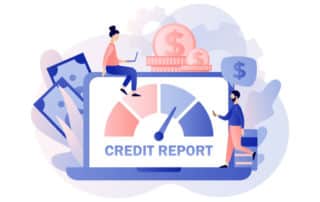
What is Bankruptcy?
Debts often pile up quickly, placing individuals or their families in a difficult financial situation. Often people in difficult financial situations ask what bankruptcy is? Bankruptcy provides individuals saddled with substantial debts a way to become financially free of those debts while legally treating their creditors. Once the bankruptcy process is complete, people often explain the relief they feel as they get a fresh start without the weight of overdue bills.
Generally, there are two (2) types of bankruptcies, a reorganization of your debts or liquidation.
- Chapter 7 bankruptcy: wipes out certain debts, but the bankruptcy trustee may sell your nonexempt property and disburse the proceeds to your creditors.
- Chapter 13 Bankruptcy. In this type of bankruptcy, your debts are reorganized, much like a corporate Chapter 11. Although you may retain your property, you must propose either a 36 to 60-month reorganization plan. The Chapter 13 Plan will pay your creditors the greater of 1) what they would have received in a hypothetical Chapter 7 liquidation, or 2) your disposable income, which is determined by your bankruptcy schedules.
Chapter 7 Bankruptcy
This is a liquidation type bankruptcy where the debtors get their debts such as unsecured credit cards, personal loans, and medical bills discharged without paying a monthly plan.
The debtor acknowledges that the appointed Chapter 7 bankruptcy trustee can sell the debtor’s nonexempt property to have these debts wiped out. After the nonexempt property is sold, the trustee disburses the proceeds from the sales to the debtor’s creditors following the Bankruptcy Code’s priority system.
In Chapter 7, a debtor does not have to surrender all of his/her assets to the trustee. Debtors can keep their homestead, $1,000 worth of personal property, which typically consists of furniture, clothing, and $1,000 that may be applied towards a car. In most cases, many debtors can keep their property without any issues.
It is important to note that Chapter 7 may not wipe out all debt. Some debts are deemed nondischargeable debts by the Bankruptcy Code survive the bankruptcy is completed. Here are some examples of debts that are nondischargeable:
1) 11 USC § 523(a)(5) – Child support and alimony;
2) 11 USC § 523(a)(1) – IRS income taxes assessed in the last 3 years;
3) 11 USC § 523(a)(4) – fraud or defalcation;
4) 11 USC § 523(a)(9) – injury or wrongful death awards in connection with operating a vehicle while intoxicated, and
5) student loans.
Both individuals and businesses may file for Chapter 7 Bankruptcy. A Chapter 7 bankruptcy lasts four (4) to six (6) months.
Critical Points about Chapter 7 Bankruptcy
Here is a list of some of the critical points about Chapter 7 that you should know.
Eligibility to File Chapter 7
Specific individuals cannot file and obtain a Chapter 7 discharge. Suppose most of your debts are related to consumer accounts (not business-related), and your net income (after subtracting certain allowed expenses from your income) is sufficient to fund a Chapter 13 plan. Your filing may be considered an abuse, and you will not be permitted to proceed under Chapter 7.
Property in Chapter 7
You are permitted to exempt certain assets allowed under the Florida exemption. Many people that file under Chapter 7 discover that Florida state exemption laws protect completely cover their property. To read more, contact a Miami Chapter 7 Bankruptcy Lawyer.
Secured Debt in Chapter 7
If you have fallen behind on your mortgage or automobile loan, you will have to choose whether your creditor repossesses the collateral and the debt becomes discharged. If you are up to date with your secured debts, you may keep the property but must continue making your contractual payments.
Consumer nondischargeable debts
Bankruptcy easily eliminates credit card debts, medical bills, and personally guaranteed loans. Nevertheless, some debt such as child support, alimony, and specific income tax bills can not be discharged in bankruptcy. For additional information, go to What Bankruptcy Can and Can’t Do.
Chapter 13 Bankruptcy
In a Chapter 13 bankruptcy, you’re required to have an income source (can be from family support) to file under this chapter, enabling you to repay a portion of your debts.
Chapter 13 Plan
You must propose a Chapter 13 plan demonstrating how you will deal with your debts over 36 to 60-months. The minimum you will have to pay the Chapter 13 Trustee towards your plan payments depends on the disposable income you have (income minus expenses permitted by the Bankruptcy Code) or your nonexempt property’s equity.
Chapter 13 Debt limits
Pursuant to 11 USC § 109(e), a debtor cannot have secured debt exceeding $1,257,850 and unsecured debt exceeding $419,275 (updated April 2019).
Arrearages in Chapter 13
A Chapter 13 bankruptcy repayment plan is the chapter of choice that allows debtors to cure their past-due mortgage and vehicle payments to avoid foreclosures and repossessions. For additional information, see How can I save my Home with Chapter 13?
Hire an Experienced and Patient Miami Bankruptcy Lawyer
Being behind on your bills can be extremely stressful. Hiring an experienced and patient Miami Bankruptcy Lawyer can help you get back on track financially so that you can focus on your work and your family, instead of that stack of bills. We’ll review all of your financial information to determine what type of bankruptcy best meets your needs and ensure that the entire process runs smoothly. Please call us at (305) 515-5928 today to schedule a consultation.
Consultations Available At:
Consultations Available At:




